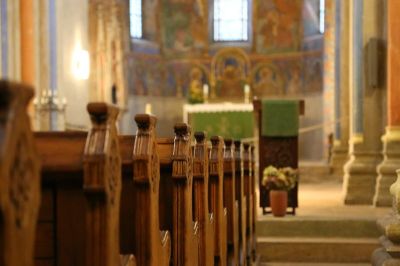America's Top 10 Most Post-Christian Cities: Barna

The top 10 most "post-Christian" cities in America, where residents are least likely to believe in God, or say that the Bible and Jesus are perfect, have been ranked in a study by Barna Group.
Eight of the most post-Christian cities are in the Northeast with Portland-Auburn, Maine, topping the list, according to Barna's report Tuesday.

In order to qualify as "post-Christian," respondents in the cities had to meet nine or more identifying factors from a set list. The list included categories such as "Do not believe in God," "identify as atheist or agnostic," "have never made a commitment to Jesus," "have not prayed to God (in the last week)," "agree that Jesus committed sins," and "disagree the Bible is accurate," among others.
Barna explained that the type of questions it used went beyond simply asking people to check a box for whether they are Christian or not, and delved into the core of what they actually believe.
Barna included a top 100 ranking of such cities, with the top 10 listed as follows:
- Portland-Auburn, ME (57 percent)
- Boston, MA-Manchester, NH (56 percent)
- Albany-Schenectady-Troy, NY (54 percent)
- Providence, RI-New Bedford, MA (53 percent)
- Burlington, VT-Plattsburgh, NY (53 percent)
- Hartford-New Haven, CT (52 percent)
- New York, NY (51 percent)
- San Francisco-Oakland-San Jose, CA (50 percent)
- Seattle-Tacoma (50 percent)
- Buffalo, NY (50 percent)
Barna pointed out that "church attendance, religious affiliation, belief in God, prayer and Bible-reading have all been dropping for decades" in America.
"By consequence, the role of religion in public life has been slowly diminishing, and the church no longer functions with the cultural authority it held in times past," it added.
"These are unique days for the church in America as it learns what it means to flourish in a new 'Post-Christian' era."
The data was gathered from a nationwide random sample of 76,505 adults conducted over a seven-year period, ending in April 2016. The margin of sampling error is plus or minus 0.4 percentage points at the 95 percent confidence level, Barna said.
Several different surveys have attempted to measure belief in God or lack thereof in America, though most have indeed shown that there has been a decline in Americans identifying as religious over the decades.
Analysis from Gallup poll data in December 2016 showed that 21 percent of U.S. respondents to a survey did not have a formal religious identity, while only 2 to 3 percent said the same in the 1940s and 1950s.
Gallup also found that church and other religious attendance has been declining. While 73 percent of respondents said in 1937 that they were a member of a church, only 56 percent said the same in 2016.
Additionally, 72 percent of of those surveyed in 2016 said that religion is losing its influence on American life.






















